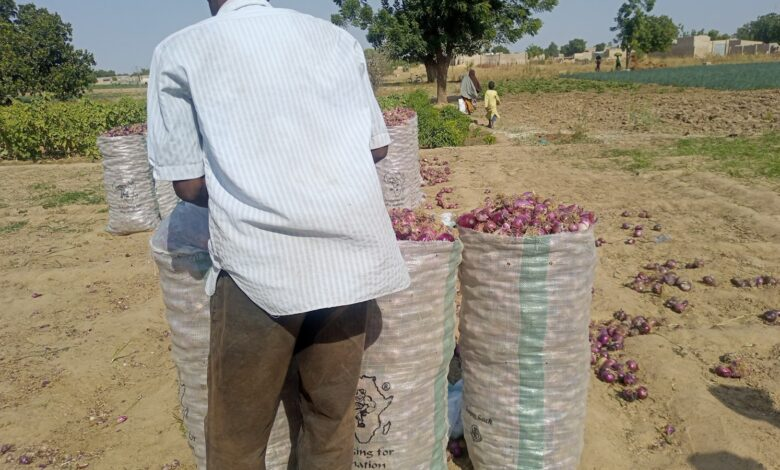More IDPs, Returnees Will Experience Food Insecurity In Northeast Nigeria – WFP
Internally displaced persons and returnees are prone to food insecurity in Borno, Adamawa, and Yobe States, as the United Nations World Food Programme warns that people would be pushed further into food insecurity.

A new report has revealed that a significantly higher number of households will be pushed into food insecurity in Northeast Nigeria compared to 2021 as the year 2022 lean season signals.
The report, published by the World Food Programme (WFP), revealed that over 40 per cent of households in Northeast Nigeria have inadequate food consumption at the start of the lean season – which marks a 10 per cent point increase compared to last year.
According to the report, IDPs and returnees in Borno, Adamawa, and Yobe (BAY) States show significantly higher levels of deprivation.
The deprivation, the report indicated, is in terms of food consumption, coping, non-monetary poverty and food stock levels compared to permanent residents.
However, based on last year’s data, the WFP said coping among IDPs and returnees would increase again in the coming months.
“In May, around 40 per cent of cultivating households had some food stocks remaining. However, the stock will not last longer than two months for most households. Therefore, food consumption is expected to worsen rapidly over the coming months,” the report said.
HumAngle has reported how farmers in the Northeast and other parts of the North have been constantly under attack by terrorists because they could not afford to pay imposed levies. According to WFP, the late arrival of donor contributions forced a reduction in the number of people reached by them in February this year, despite needs in Northeast Nigeria.
The humanitarian organisation also raised concerns that the ongoing Russian-Ukraine war could worsen food security.
Conflict in northeast Nigeria remains a protracted crisis, with persistent inequalities and poverty affecting the region.
As of March 2022, 2.17 million individuals remain internally displaced in Borno, Adamawa and Yobe states, with women and children comprising most of this figure.
Armed insurgency in northeast Nigeria has intensified, resulting in increased humanitarian access challenges, recurring displacement, increased food insecurity, and limited opportunities to introduce durable solutions. As a result, inflation rates have continued to rise since Oct. 2020 and saw an exceptionally sharp jump in early 2021.
Support Our Journalism
There are millions of ordinary people affected by conflict in Africa whose stories are missing in the mainstream media. HumAngle is determined to tell those challenging and under-reported stories, hoping that the people impacted by these conflicts will find the safety and security they deserve.
To ensure that we continue to provide public service coverage, we have a small favour to ask you. We want you to be part of our journalistic endeavour by contributing a token to us.
Your donation will further promote a robust, free, and independent media.
Donate HereStay Closer To The Stories That Matter




